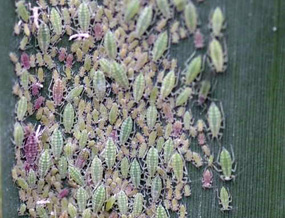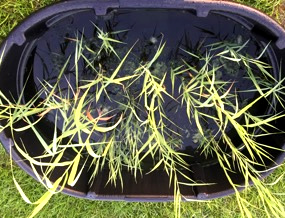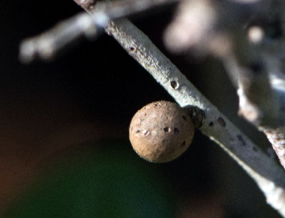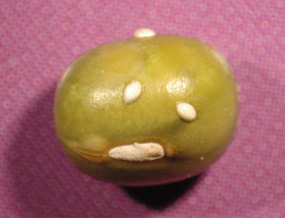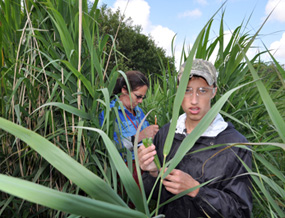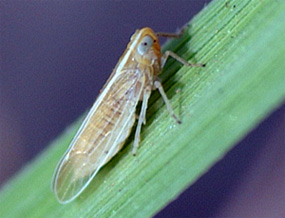Reeve, J. D., J. T. Cronin and D. R. Strong. 1994. Parasitism and generation cycles in a salt-marsh planthopper. Journal of Animal Ecology 63: 912-920.
1. In warm climates many insects exhibit discrete generations, in the absence of obvious factors that could synchronize their age structure. It has been hypothesized that parasitoid wasps might be responsible for these oscillations in the host age structure, known as generation cycles.
2. We examine the role of the parasitoid Anagrus delicatus in the dynamics of the salt-marsh planthopper Prokelisia marginata. In particular, we evaluate the hypothesis that Anagrus contributes to the formation of generation cycles in the hopper, in the subtropical climate of Florida.
3. Two kinds of evidence are presented. First, we construct continuous-time models of the system that incorporate what is known about Anagrus foraging behaviour, the life cycles of host and parasitoid, and their movements. We then examine the behaviour of these models to determine if Anagrus has the potential to induce generation cycles. We also show how spatial variation in the risk of parasitism can generate "pseudo-interference" in our continuous-time framework. Secondly, we examine the temporal pattern of host and parasitoid abundance, and parasitism rates in the field. If Anagrus were contributing to the formation of generation cycles, we would expect to see a characteristic pattern of abundance and mortality from parasitism.
4. Both our modeling and empirical results suggest that Anagrus contributes to generation cycles in Prokelisia. Anagrus has the theoretical prerequisites for generation cycles to occur and in the field generates a cyclic pattern of parasitism that would help induce generation cycles in the planthopper.
5. The existence of an adult host stage that is invulnerable to parasitism strongly influences the stability of our models. Without this stage Anagrus cannot fully stabilize the system, even if the risk of parasitism varies greatly from patch to patch.
